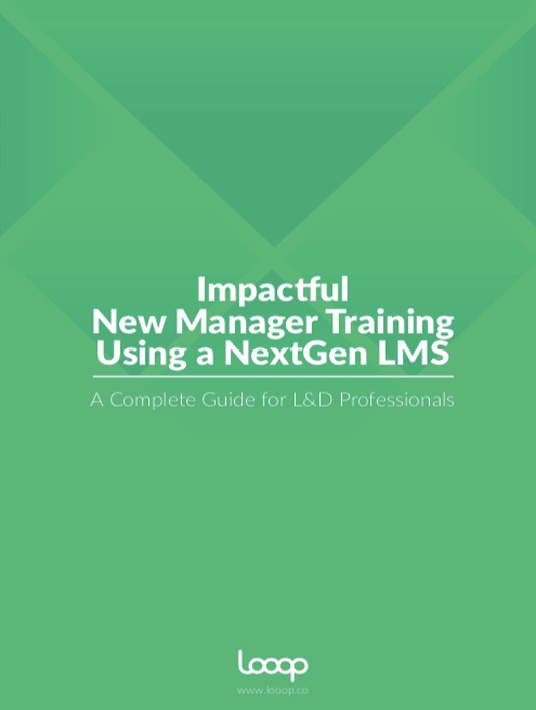What To Include In Your Manager Training Programme
One-off classroom seminars or courses aren’t enough. L&D teams need to be supporting managers with their day-to-day issues at their moments of need if they really want to make an impact.
L&D teams must start with understanding the situations, challenges, and questions that new managers have, and then shape the manager training programme to address these common concerns. So, how can you ensure you’re focusing on the right things? Take a look at our points below to find out the common issues your managers face and how best to address them.

Before Day One
Unfortunately, new managers are often left to figure out their roles as they go. This leads to good and bad habits being formed and, often, nothing new is learned, instead previous experience is used.
Your manager training programme needs to start by preparing your managers before they settle into the role. Remember, every new role is nerve-racking so your manager training programme should help tackle this apprehension by preparing your managers as much as you can before their first day in the new role.
Preboarding resources offer a sense of comfort and readiness for your new managers. By using digital resources, your content can be created within minutes, made readily available for moments of need and accessed on demand, so you can guide your new managers immediately without worrying about unnecessary delays.
When shaping your preboarding resources, you should address questions that many new managers would want to know, such as:
- What to do now you’re a new manager
- What’s expected of a manager?
- How to understand and manage priorities
- Common questions a manager may be asked
The adjusting period of a new role can be daunting and overwhelming, so it’s important to empathise with your managers and ensure you’re providing resources that address their common concerns and questions.
Establishing Themselves As A Manager
After you’ve addressed the initial concerns, you should focus on helping managers establish themselves in the organisation.
Gather the expertise of more experienced and senior managers in the company and utilise this information to create resources that address the issues they experienced when they started their roles and the common day-to-day issues they currently face.
Topics to cover in your resources at this stage could include:
- How to manage expectations
- How to build relationships
- How to build a management routine that works
The most knowledge is often gained through doing, so the expertise and insight received from senior managers will provide far more value to your new managers than any course ever could. Common concerns and issues are usually widespread throughout the organisation, so gather as much feedback as you can and pack this knowledge into useful digital resources.
Continuous Manager Training
Your manager training programme should offer a continuous learning path so your managers can continue to learn and improve even after a few months in the role. Once you’ve gathered feedback from the experts, you should also turn to your new managers to shape your next set of resources.
Ask them about the challenges they face, what their day-to-day is like, and if there are difficulties managing their teams. Use their feedback to build your next set of resources that are aimed at the ongoing day-to-day issues, for all levels of seniority.
Resources in this section could include:
- Overcoming challenges and difficult situations
- Managing budgets
- Team building
Remember, digital resources can be easily updated so you should look to regularly include your managers in the training process, consistently gathering their feedback and monitoring performance and productivity to see what is or isn’t working.
In Summary
By answering the questions and concerns of your managers and guiding them using actual experience from their senior peers, you provide your managers with the tools they need to gain even more knowledge and expertise, alongside the continuous learning they’ll already be doing on the job.
Digital resources are much cheaper and quicker to create than courses, and their immediacy and ability to address moments of need prove that they can also be far more effective.
You can easily update the content in the resources over time using feedback and data, and by understanding the common concerns and moments of the need of your managers, you’ll find your leadership teams will be consistent across the board and ready to support the business long-term.
Training new managers has always been important, but the workplace has transformed rapidly since the rise in digital and therefore it’s important to ensure your organisation can keep up. Download the eBook Impactful New Manager Training Using A NextGen LMS: A Complete Guide For L&D Professionals and find out how good leaders will guide their teams to achieve higher performance, better productivity, and improved morale, so training your managers in the right way is essential.







